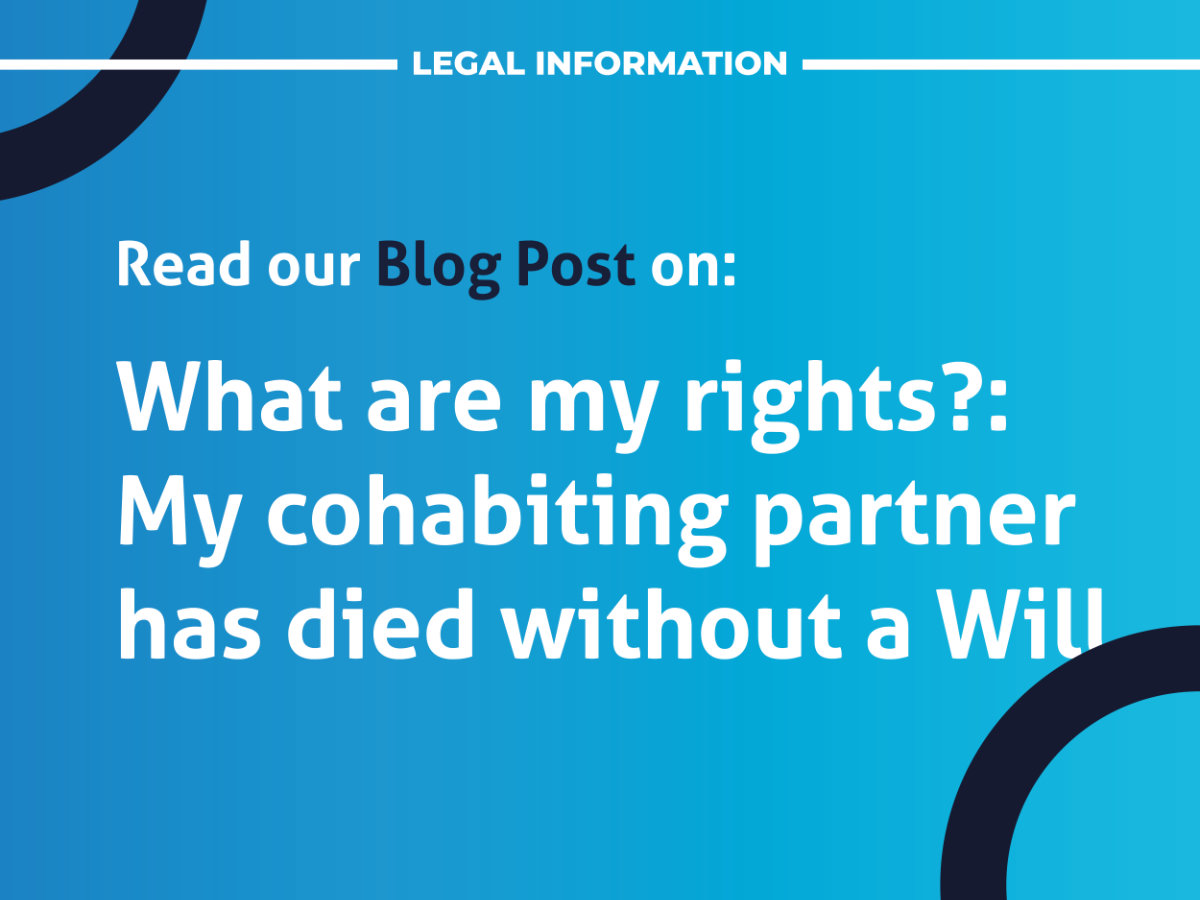
What are my rights if my partner dies without a will?
My cohabitant has died without a will – what are my rights?
Where there is no will, a surviving unmarried partner is not automatically entitled to receive money from their deceased cohabitant’s estate. This can make it more challenging to go through a difficult moment. The surviving cohabitant may ask the court for financial support after the deceased person’s passing if there is no will in place.
How do I make an application?
You can ask the court for a benefit from the decedent’s estate by asking your lawyer to submit an application on your behalf. The court will decide whether or not you will inherit from the decedent’s estate based on the rules of intestacy after an application has been made.
What do I inherit in case of a successful application?
You may be entitled to receive a capital payment from the deceased’s net estate if the court so orders. The order may also specify that you get certain assets from the decedent’s estate. The order cannot provide you more money than you would have gotten if the dead had been your spouse or in a civil union with you.
If my partner dies, what factors will the court consider?
It’s critical to convince the court that you shared a home with the deceased. This entails cohabiting as though you were wed or in a civil partnership.
- The size and nature of the decedent’s net estate, any benefit you have received or will receive as a result of the death (for instance, if heritable property passes to you through the title deeds or if you receive benefit through a life insurance policy or pension), and finally, your application will all be taken into consideration by the court.
- The existence and scope of any additional claims or rights against the estate of the deceased (perhaps including claims from other family members); and Any other matter the court deems pertinent.
Additionally, the deceased civil partner had to have lived in Scotland at the time of their death.
When must I submit my application?
The court must receive the application from the surviving partner within six months of the decedent’s passing. Therefore, in order to ensure that the application can be submitted within this limited time frame, it is crucial to get in touch with your solicitor and get legal advice as soon as possible.
What if one of the partners of an unmarried couple left a will?
It is not possible to request financial provision from the court if your cohabitant left a will.
What can I do in to avoid intestacy?
Ensuring you have a current will in place, is still our recommendation. You can provide yourself and your partner the assurance of inheritance that your affairs are in order and that your cohabitant will be taken care of by include a provision for them in your will. By doing this, a court proceeding with a short deadline during a trying moment is avoided.
Please take note that this blog’s content only relates to Scotland.
At Clarity Solicitors, we have highly regarded lawyers who have expertise advising on problematic trusts and estates in both our personal and family teams and our dispute resolution teams. Contact us if you need our help knowing your legal rights.
